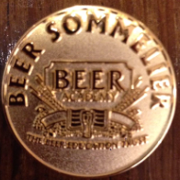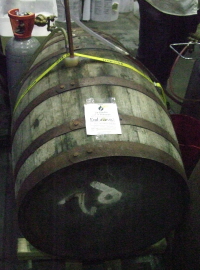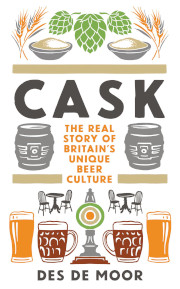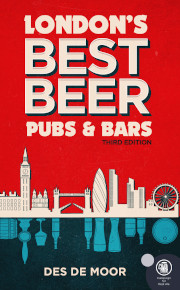ABV: 9%
Origin: Baarle-Hertog, Antwerpen, Vlaanderen
Website: www.dedochtervandekorenaar.be
De Dochter van de Korenaar (‘the ear of corn’s daughter’, a poetic expression for beer) is a Belgian brewery, but only just. It was founded by a former home brewer, Ronald Mengerink, originally from Groningen in the northeast of the Netherlands, who lived for a time in France. When he finally went professional in 2007, Ronald located his brewery adjacent to his home in the intriguing location of Baarle-Hertog.
Connoisseurs of geopolitical eccentricity will be familiar with Baarle-Hertog, an enclave of the Belgian province of Antwerpen in the Dutch province of Noord-Brabant – or rather several enclaves totalling 7.5km2, some of which in themselves contain enclaves of the Netherlands. These enclaves are a legacy of 11th and 12th century land deals between the Dukes of Brabant, the Lords of Breda and the Counts of Holland that somehow managed to exert their influence beyond the foundation of the Kingdom of Belgium in 1831. The boundaries even bisect individual buildings and what life must have been like there before Schengen and the euro is hard to imagine.
De Dochter van de Korenaar is a small, artisanal setup and I have to confess my early experiences with its beers were not happy ones. But the quality has got more consistent in recent years and Ronald’s experimental approach has caught the interest of an increasingly globally aware young market of beer fans in both Belgium and the Netherlands.
Embrasse, first sold in 2008, is one of the brewery’s most highly rated beers, described as a cross between a strong, dark Trappist and an imperial stout, with a generous dose of hops more typical of the latter. It’s also been the basis of various oak matured special editions, including Peated Oak Aged (the English term is used), ripened for three months in oak barrels formerly filled with Connemara peated whiskey from the Cooley distillery in Ireland.
Last year Peated Oak Aged Embrasse was voted beer of the festival at the Zythos Bierfestival, and this year it was back, served from a suitably rugged looking barrel by handpump with the assistance of a CO2 cask breather.
The resulting beer was a very dark amber brown with a thick and bubbly head. A rich woody, leathery and meaty aroma had notes of black treacle as well as a definite whiff of peated malt whiskey. The thick chocolate palate was tingly with gentle carbonation, with oaky vanilla, tangy orange fruit, and lots of dark cakey malt, still with whiskey evident.
The woody vanillins became slightly more pronounced on a tangy finish, with more of that orange fruit, a pleasant sweetness and a roasty malt note that sat in the mouth, without the burnt quality of some beers in this style. A splendid beer that certainly redeemed my earlier disappointments.






Leave a Reply